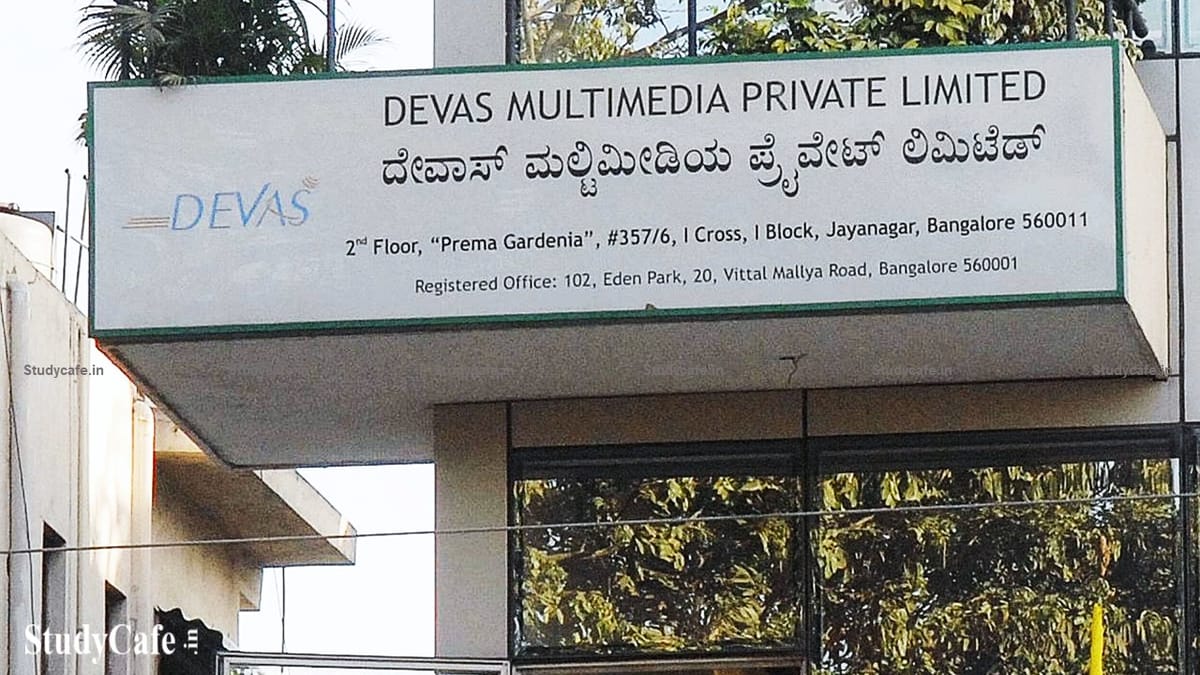Commercial Arm of ISRO Seeking for the Winding Up of the DEVAS Due to New Policy on SBand by Government of India
Shivani Bhati | Jan 27, 2022 |

Commercial Arm of ISRO Seeking for the Winding Up of the DEVAS Due to New Policy on SBand by Government of India
DEVAS MULTIMEDIA PRIVATE LTD.
V/S
ANTRIX CORPORATION LTD. & ANR.
CIVIL APPEAL NO.5766 of 2021
Issue
Appeal filed before the Supreme Court to challenge the order passes by the National Company Law Tribunal under Section 271(c) of the Companies Act, for winding up the Company in liquidation.
Facts
Findings
The Companies Act, 1956 spoke about two categories of winding up, namely,
(i) winding up by the Tribunal; and
(ii) voluntary winding up. The circumstances in which a company could be wound up by the Court, were enlisted in Section 433 of the 1956 Act.
This Section contained a list of nine circumstances in which a company may be wound up. Fraud
(i) either in the formation of the company or
(ii) in the conduct of affairs of the company or
(iii) on the part of persons concerned in the formation of or the management of its affairs, was not one of the circumstances stipulated in Section 433 of 1956 Act.
Though Section 433 of the 1956 Act did not include fraud as one of the circumstances in which a company may be wound up, there was still an indirect reference to fraud. Section 439(1) of the 1956 Act provided a list of seven persons who were entitled to file an application for the winding up of a company. Under clause (f) of subsection (1) of Section 439, an application for winding up shall be presented by “any person authorized by the Central Government in their behalf” in a case falling under Section 243.
Judgement
Supreme Court held that the action of Antrix in seeking the winding up of Devas may not send a wrong message, to the community of investors. But allowing Devas and its shareholders to reap the benefits of their fraudulent action, may nevertheless send another wrong message namely that by adopting fraudulent means and by bringing into India an investment in a sum of INR 579 crores, the investors can hope to get tens of thousands of crores of rupees, even after siphoning off INR 488 crores.
Therefore, all the grounds of attack to the concurrent orders of the NCLT and NCLAT are unsustainable.
To Read the Judgment Download PDF Given Below :
In case of any Doubt regarding Membership you can mail us at contact@studycafe.in
Join Studycafe's WhatsApp Group or Telegram Channel for Latest Updates on Government Job, Sarkari Naukri, Private Jobs, Income Tax, GST, Companies Act, Judgements and CA, CS, ICWA, and MUCH MORE!"